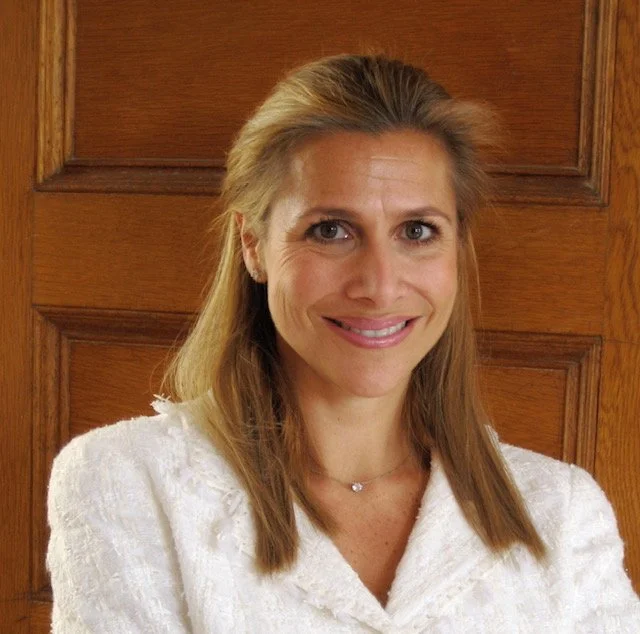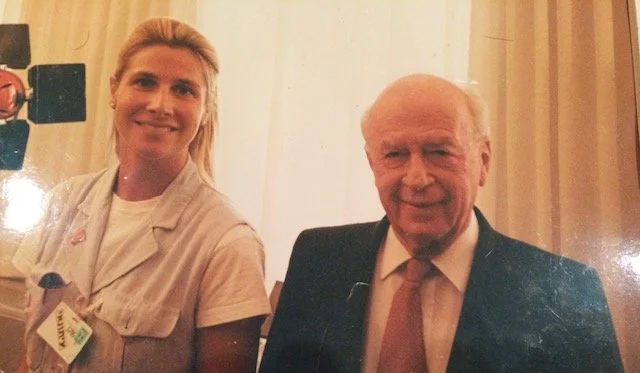Nicolla Hewitt: A Testament to Journalistic Resilience and the Power of Storytelling

Nicolla Hewitt, a distinguished broadcast journalist with over 25 years of experience, has made her mark in renowned media companies such as ABC, CBS, NBC, and Yahoo. Her extensive career has been characterized by a deep understanding of international issues and global affairs, complemented by her exceptional ability to deliver high-value media placement for her clients. Currently, she runs her own PR company, advising high-profile individuals and non-profit organizations.
Nicolla Hewitt
In a recent interview with the Association of Foreign Press Correspondents (AFPC-USA), Hewitt shared her remarkable experiences as a foreign correspondent, delving into her early days in the U.S. media industry and her journey working for prestigious networks. She reflected on the highlights and challenges she encountered during her extensive tenure, highlighting the importance of resilience and maintaining strong personal relationships in the highly competitive field of journalism. Hewitt also recounted memorable stories and assignments that left a lasting impact on her, witnessing history unfold before her eyes.
Hewitt's journey as a seasoned broadcast journalist is a testament to her passion for global news, her dedication to delivering impactful stories, and her unwavering commitment to journalistic integrity. Her wealth of experience and profound insights make her a valuable voice in the field, driving forward the ever-evolving landscape of international journalism.
Moreover, she firmly believes in the power of storytelling and the responsibility journalists carry to report and document significant events. She elaborates on this—and more—in the interview below.
Can you tell us about your early experiences in the U.S. media industry and how you embarked on your career with renowned companies like ABC, CBS, NBC, and Yahoo?
They say in life that timing is everything and so is never giving up on a dream. I always knew I wanted to be a journalist as I became fascinated when then Prince Charles got engaged to Lady Diana Spencer. I read every newspaper and magazine I could lay my hands on to see what they were doing. That in turn opened my fascination with journalism and TV and that became my dream—to enter that field.
Hewitt with former Israeli Prime Minister Yitzhak Rabin
I started at ABC News in London and after four days working there answering phones I was sent to Berlin with a piece of equipment. The night I arrived the Berlin Wall fell and I watched history before my very eyes. Peter Jennings was sent to cover the story and I was assigned to him. He listened to ideas I had and really encouraged me from the get-go. Foreign news has always been my passion, having lived all over the world. It was Peter Jennings who encouraged me to be based out of Israel for four years covering the Israeli-Palestinian issue. I saw history there too when the Oslo Accords were signed and Yasser Arafat returned from exile. Then there was the tragedy of Ytizhak Rabin being assassinated. The Middle East is my passion and I have reported all over the region from Iraq, Syria, Saudi Arabia, Egypt, Jordan, and Lebanon. My greatest run was at NBC News where I worked and produced with some of the best in the business: Katie Couric, Tom Brokaw, Tim Russert and Andrea Mitchell to name a few.
Being at Yahoo was interesting as it was just when social media platforms were starting to be well regarded as news sources. That said, nothing beats being in the field and traveling the world!
What were some of the highlights and challenges you faced during your nearly 30 years in U.S. media, and how did those experiences shape your understanding of the industry?
I have been so lucky to have seen so much history unfold in front of me. They included presidential Inaugurations, royal weddings and then the tragedy of Princess Diana’s funeral. Highlights were always scoring big interviews with a president, a king, a prime minister or a big breaking news person. I realized hard work, resilience and maintaining good personal relationships are super important, and outsmarting the competition too in a highly competitive business. Challenges were definitely working long hours; very tight deadlines; live events; last minute trips and never knowing how long you would be gone for. Covering wars wasn't easy either, and those times taught me to be incredibly nimble and really being fast on your feet. I was always grateful for the training we received before we embarked on some complicated assignments—particularly in Iraq and Gaza.
As a journalist with a background in broadcast journalism, could you share any memorable stories or assignments that left a lasting impact on you?
There’s an array of diverse moments that I will never forget. The night the Berlin Wall fell and seeing people not get shot by the East German police; the day Yasser Arafat came back to Gaza and I was in the same room as him for an interview. I just couldn’t believe it. Going to the White House and 10 Downing Street for the first time. You felt the power and magnitude of their offices and responsibilities. I will never forget the silence on the streets of London the sad morning of Princess Diana’s funeral when her coffin made its way from Kensington Palace to Westminster Abbey. Seeing Prince William and Prince Harry behind the coffin with those beautiful lilies and the card that said “Mummy” on top is something I will never forget. It was hard not to burst into tears.
But then there were happy moments, such as when Prince William got married in the same place. One really fun assignment was when King Abdullah and Queen Rania of Jordan came on the throne and we did the first interview with them. It was amazing of the King to fly us around on his helicopter to Petra and Wadi Rum to show us where Lawrence of Arabia was filmed and then lend us his boat to go out on the Red Sea to snorkel the next day. That was special! One tough assignment was covering the events in Egypt in Tahrir Square in 2011 and all the rocket fire at night by our hotel and the unpredictability of the situation.
How would you describe "America" as a concept?
America is a country where dreams are made. It’s a country that, no matter where you are in the world, you have a little part of in most aspects of everyday life—be it the music you hear, the movie you're watching, the phone you’re using, or the clothes you’re wearing. It’s a country of impact and hope.
What do you think are the most important stories in the U.S. today?
Hewitt and fellow journalist Katie Couric with former U.K. Prime Minister David Cameron
Sadly I think it’s the divisive rhetoric of our political parties today, and the tragedy of near daily mass shootings.
Given your extensive experience in international issues and global affairs, how has your understanding of these topics evolved over the years, and how do you think it has influenced your approach to journalism?
It’s important not to be influenced as a journalist and always maintain absolute objectivity. I think the rise of cable TV has sometimes blurred this in recent years. I have always been a fast learner and I love to read, so much of my career and covering the world was because of my curiosity about how other cultures live. I have always been a people person and I couldn’t believe I got to enjoy a career in which I got to meet fascinating people and travel all over the world. As I’ve said earlier, seeing history being made has been remarkable and the responsibility of being able to report that immense. I witnessed the collapse of the USSR and saw the first female voted in as Vice President of the United States. So my approach is to be engaged, and stay engaged. Be curious, and stay curious. As a journalist you have the power to tell the story.
With your background in broadcast journalism, what do you consider to be the most significant changes or advancements in the industry throughout your career, and how have these developments impacted your work as a journalist?
I think the most significant change and advancements in the industry are the internet and social media. A mobile phone now has the ability to broadcast live events from the palm of your hand. This is remarkable So it’s made waiting around to hear a story—or tell a story—a thing of the past. Watching regular people record events from their own phone and become citizen journalists, so to speak, is a huge shift in what we used to consider ’normal' journalistic reporting.
Alan Herrera is the Editorial Supervisor for the Association of Foreign Press Correspondents (AFPC-USA), where he oversees the organization’s media platform, foreignpress.org. He previously served as AFPC-USA’s General Secretary from 2019 to 2021 and as its Treasurer until early 2022.
Alan is an editor and reporter who has worked on interviews with such individuals as former White House Communications Director Anthony Scaramucci; Maria Fernanda Espinosa, the former President of the United Nations General Assembly; and Mariangela Zappia, the former Permanent Representative to Italy for the U.N. and current Italian Ambassador to the United States.
Alan has spent his career managing teams as well as commissioning, writing, and editing pieces on subjects like sustainable trade, financial markets, climate change, artificial intelligence, threats to the global information environment, and domestic and international politics. Alan began his career writing film criticism for fun and later worked as the Editor on the content team for Star Trek actor and activist George Takei, where he oversaw the writing team and championed progressive policy initatives, with a particular focus on LGBTQ+ rights advocacy.


